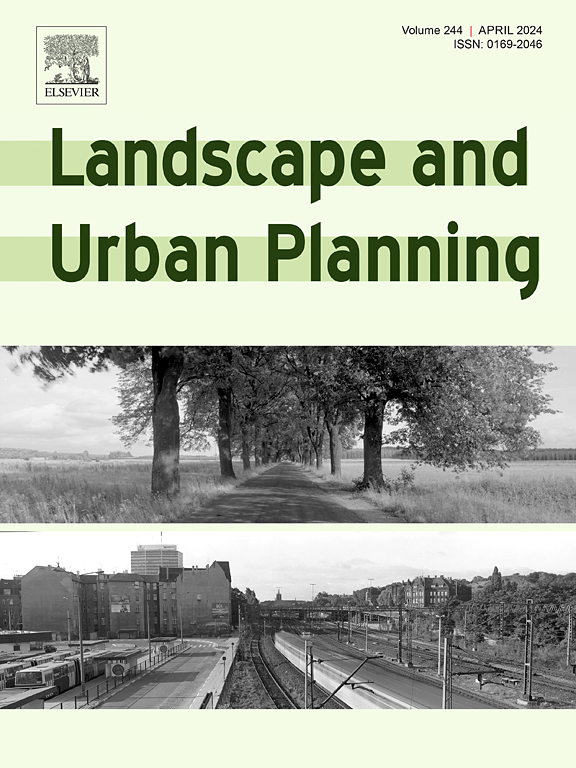跨越景观和学科的无家可归与自然:文献综述
IF 7.9
1区 环境科学与生态学
Q1 ECOLOGY
引用次数: 0
摘要
近年来,自然资源管理中无家可归现象的复杂社会生态动态日益明显。系统地理解和参与这些跨部门、跨学科和跨地貌的动态变化,对从业人员和研究人员来说都是概念和方法上的挑战。尽管近年来一些跨学科研究有所扩展,但其所促进的理解在很大程度上仍然是跨学科的,对其对实践的影响也知之甚少。为了帮助在这种支离破碎的对话中建立联系,我们查阅了 111 篇相关的学术期刊文章、书籍和报告,涉及广泛的学科领域。在这些文献中,我们注意到人们越来越关注通过社会生态系统耦合视角来理解无家可归问题的驱动因素、影响和解决方案,但仍存在关键差距。面向城市研究、环境正义、公共卫生、政治生态学和土著研究的研究提供了特别重要的方法和概念创新,有望更好地面对和解决流动、动态和综合社会生态系统中的正义问题。我们讨论了各项研究的机遇,以便更好地纳入社区关注、关注异质无家可归者群体、跨学科应用多种分析尺度、应对市场力量、纳入不同的世界观和研究人员的反思性,以及应对气候变化等复杂的社会生态挑战。为了帮助围绕这些需求和机遇进行动员,我们鼓励研究人员、从业人员和有无家可归生活经历的人共同制定研究议程,这一过程可以为加强跨部门和跨学科合作奠定共同的基础,并确定优先事项,以便更好地理解和应对无家可归问题所带来的复杂而有争议的挑战。本文章由计算机程序翻译,如有差异,请以英文原文为准。
Homelessness and nature across landscapes and disciplines: A literature review
The complex social-ecological dynamics of homelessness in natural resource management have become increasingly apparent in recent years. Systematically understanding and engaging with these dynamics across sectors, disciplines, and landscapes has presented a conceptual and methodological challenge for both practitioners and researchers. Though some interdisciplinary research has expanded in recent years, the understanding it has fostered largely remains fragmented across disciplines, and its implications for practice are poorly understood. To help create connections across this fragmented dialogue, we reviewed 111 relevant academic journal articles, books, and reports across a broad range of disciplines. Across this literature, we observed an increasing focus on understanding homelessness drivers, impacts, and solutions through a coupled social-ecological systems lens, though key gaps remain. Research oriented towards urban studies, environmental justice, public health, political ecology, and Indigenous studies offered especially important methodological and conceptual innovations that promise to better confront and address justice in fluid, dynamic, and integrated social-ecological systems. We discuss opportunities for studies to better incorporate community concerns, attend to heterogenous homeless populations, apply multiple scales of analysis across disciplines, address market forces, incorporate diverse worldviews and researcher reflexivity, and address complex social-ecological challenges like climate change. To help mobilize around these needs and opportunities, we encourage researchers, practitioners, and people with lived experiences of homelessness to co-produce a research agenda, a process which could establish a shared foundation for increased collaboration across sectors and disciplines and identify priorities for better understanding and attending to the complex and contested challenges of homelessness across landscapes.
求助全文
通过发布文献求助,成功后即可免费获取论文全文。
去求助
来源期刊

Landscape and Urban Planning
环境科学-生态学
CiteScore
15.20
自引率
6.60%
发文量
232
审稿时长
6 months
期刊介绍:
Landscape and Urban Planning is an international journal that aims to enhance our understanding of landscapes and promote sustainable solutions for landscape change. The journal focuses on landscapes as complex social-ecological systems that encompass various spatial and temporal dimensions. These landscapes possess aesthetic, natural, and cultural qualities that are valued by individuals in different ways, leading to actions that alter the landscape. With increasing urbanization and the need for ecological and cultural sensitivity at various scales, a multidisciplinary approach is necessary to comprehend and align social and ecological values for landscape sustainability. The journal believes that combining landscape science with planning and design can yield positive outcomes for both people and nature.
 求助内容:
求助内容: 应助结果提醒方式:
应助结果提醒方式:


